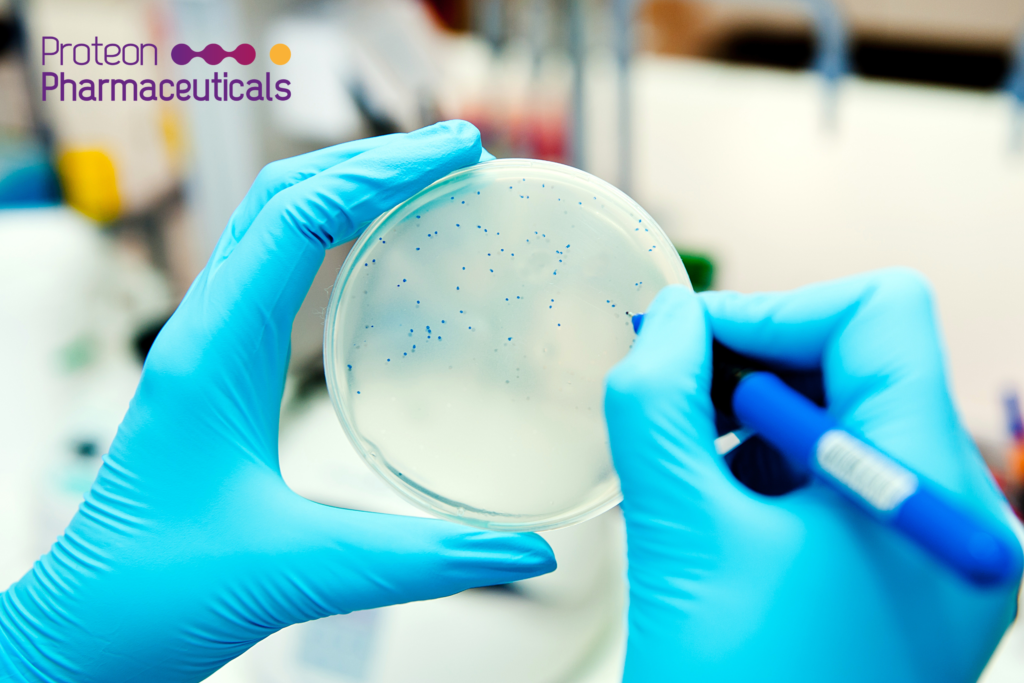Our dedicated Research and Development Team is thrilled to announce the results of one of the recently conducted breakthrough studies: “Novel multiplex-PCR test for Escherichia coli detection“. At Proteon, we recognize the need for a better approach to identify E. coli strains, which will allow us to create precise phage-based therapies to tackle the infections with success.
The outcomes were published in the article available here.
Highlights from the article:
- Escherichia coli, known as E. coli, is diversified and widespread strain of both commensal and pathogenic bacteria, causing plenty of infections of clinical importance. It can affect various body parts including the gut, lungs, and even meninges, particularly dangerous for newborns.

- The study introduces a novel multiplex-PCR method for identifying coli using amplification of only three genes (cydA, lacY, and ydjV), making it rapid and cost-effective diagnostic tool.
- The uniqueness of the novel method lies in requiring fewer steps and, consequently, less amount of time to diagnose, providing quick, inexpensive, and reliable way of detection of coli presence.
- At Proteon, we take care of the highest accuracy of conducted tests. Primers developed from 1,171 complete coli genomes were tested on 47,370 diverse Enterobacteriaceae genomes, yielding the sensitivity and specificity of 95.76% and 99.49%, respectively.
- The article emphasizes the affirmation of wet laboratory which analyses have confirmed the high specificity, repeatability, reproducibility, and reliability of the proposed tests. Although detection of three genes isn’t cost- and labor-effective, this method is highly accurate and specific in comparison to other related techniques.
The test offers a fast and affordable way to identify Escherichia coli bacteria by examining three specific genes that are key to its metabolism. This helps to clearly differentiate E. coli from similar bacteria in the Enterobacteriaceae family. The proposed multiplex PCR test stands out from others scientific studies and offers a promising solution for laboratories seeking efficient and accurate bacterial diagnosis.
Researchers & authors: B. Zimoń, M. Psujek (Proteon Pharmaceuticals S.A.), J. Matczak (Proteon Pharmaceuticals S.A.), A. Gruziński (Proteon Pharmaceuticals S.A.), E. Wójcik (Proteon Pharmaceuticals S.A.), J. Dastych (Proteon Pharmaceuticals S.A.)


